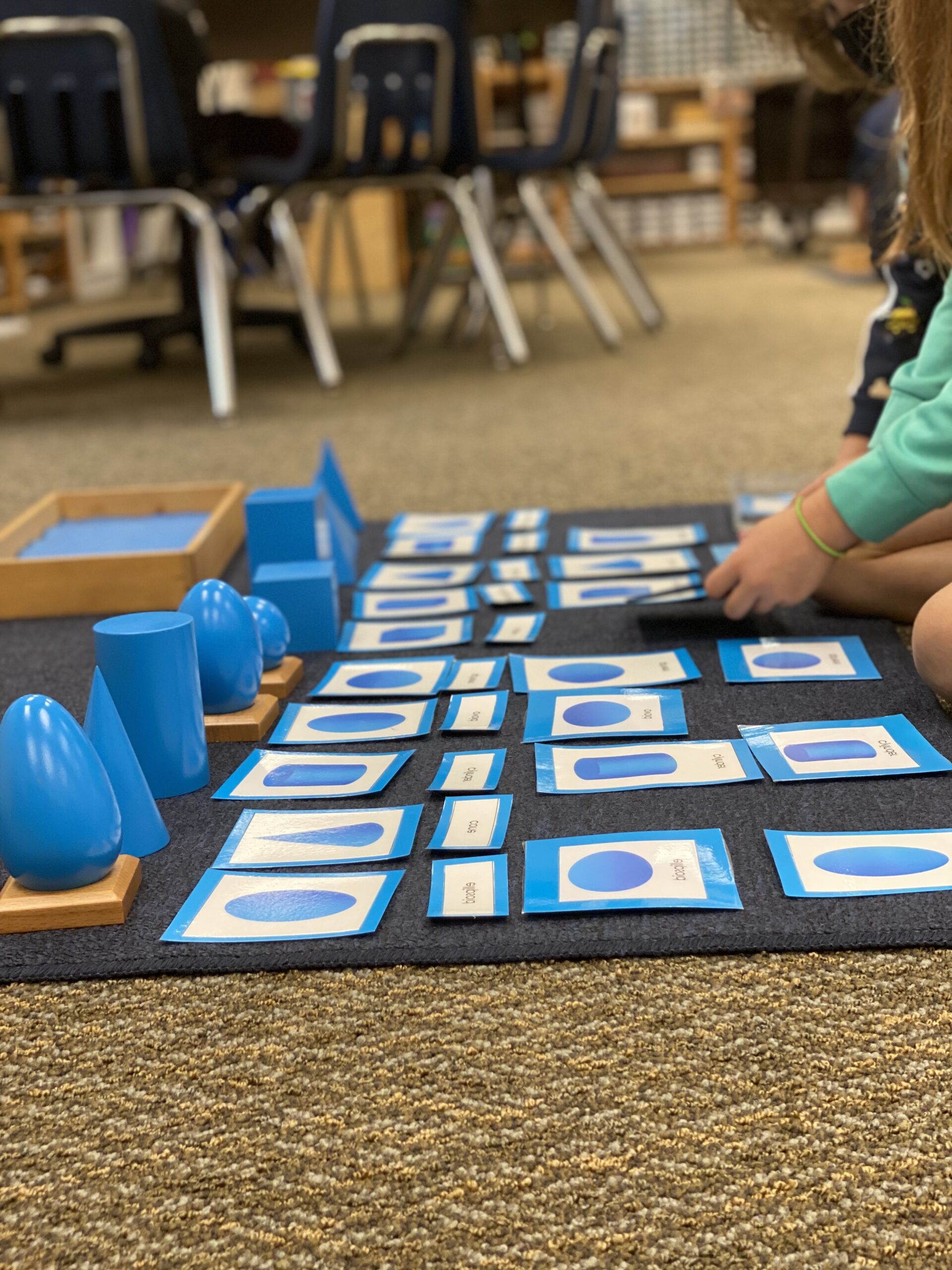Prece's Elementary Program.
Prece's Elementary Program.
Here at Prece we value the human spirit and development of the whole child, encompassing the physical, social, emotional and cognitive elements. When children enter the second plane of development at 6 years old, their focus shifts from the self and family to the bigger social world. The emphasis is now on their peers. Children from 6 years to 12 years old are entering the Intellectual Period, where their minds have immense power for great effort and concentration, developing the skill for reasoning and moral sense. Overall, Prece seeks not only to teach, but to guide children to become engaged, responsible, respectful adults, who think of themselves as life-long learners. What sets our elementary program apart is our individually paced curriculum coupled with personalized attention that challenges each child academically, and safeguards their sense of self. The classrooms are multi-aged groupings: Lower Elementary consists of 6 to 9 years old (1st - 3rd grade) while Upper Elementary consists of 9 - 12 years old (4th - 6th grade). These groupings support collaboration, by encouraging older students to teach the younger students. Teaching is the highest form of mastery. The 3-year cycle with one teacher allows for greater connection between the teacher and child as well as opportunities for the child to assume leadership roles.

Curriculum Areas.
Language
The language curriculum is a vital component of our Montessori elementary program that provides the foundation for effective communication. Our comprehensive curriculum is paired with engaging, integrated reading skills, and unique study materials that motivate children to learn a wide range of literary concepts. Each skill is taught in isolation with hands-on materials that promote deductive reasoning. The children in lower elementary have one-on-one reading conferences daily with the teacher who ensures they are prepared to participate in reading groups with their peers. At both levels, small groups of children read, analyze, discuss and think critically, as well as compare and contrast literature to support personal opinion and perspective. Dr. Montessori designed unique grammar materials that teach the 9 parts of speech, each building upon the other. This process leads students to reading and sentence analysis. The concrete and pictorial representation of structured grammatical sentences allows the child to experience the connection between grammar and writing. Students are guided through the multiple phases of this complex writing process, from outlining, sentence/paragraph development, and drafting, to editing, and revising in numerous literary genres.
Math
At the elementary level, our mathematical aim is to create opportunities for the students to develop a clear understanding of working with numbers, numerical interrelationships and a strong ability to reason. Dr. Montessori designed a practical hierarchy of concrete materials that are the foundation of the base ten decimal system. Once students understand the quantity, they are able to master facts, experience the four operations and extend their knowledge to geometry, algebra, etc. The students learn by doing, meaning they attend an initial lesson by the educator and are offered numerous opportunities to solve complex problems. Our math curriculum is personalized to each student, allowing them to move through concepts at their own pace. First by using the concrete materials and then applying the knowledge abstractly. The curriculum starts with the basics of addition, subtraction, multiplication and division of positive then negative integers swiftly evolving into word problems, fractions, percentage, ratio and proportion, algebraic concepts, and coding, etc. Students are inspired to achieve mathematical mastery.
Cultural
The interdisciplinary cultural subjects are one of the strengths of our Elementary program. Dr. Montessori’s view of how the child relates to the world becomes evident as the cultural studies unfold. The Great Lessons, a set of dramatic stories and experiments serve as an introduction to the origins of the universe and move on to explore the interconnectedness of all living things. Montessori said, “The secret of good teaching is to regard the child’s intelligences as a fertile field in which seeds may be sown, to grow under the heat of flaming imagination.” Here at Prece we believe that our offering of in depth studies of art, astronomy, botany, chemistry, civics and economics, geography, geology, history, laws of physics, music, physical and life science, peace and justice, physical education and zoology are the gateway to a life-long love of learning.
Parent Communication.
Open communication with you is the best way to become close partners in your child's developmental process. We aim to create a 'home-like' environment for your child at our Schools so that they feel safe and comfortable.We take all the small details about your child into consideration to make the transition an easy and smooth one for them. This includes general daily routine, eating habits, temperament, changes in the home environment, and various other essential details.
Under our policy of open communication, we encourage parents to attend all parent-teacher meetings and communicate with the teacher as and when required. You could talk to the teacher when you come to drop and pick up your child. Alternatively, you could schedule a meeting with the teacher, when and if necessary.
Together, we can help in your child's developmental journey so that they can bloom into a happy and confident individual. We offer to provide you with helpful information through parent education events where we focus on child development and the importance of the Montessori Method in your child's growth. We hope to meet you and your child soon!
Keep in touch.
Subscribe to our newsletter to receive more information about Infant care, stay up to to date on upcoming events and more.
Book a Personalized Tour:
Students are admitted to Prece Schools on a first-come, first served basis, subject to availability at the selected school. When you tour the school you will have the opportunity to observe children in the classroom. Seeing the classes in session is important and will help you understand how our classrooms work. We will also explain Montessori philosophy and answer any questions you might have.
